- Home
- Academic Departments
- Clinical Pharmacy
- Previous Faculty Spotlights
CSAS Banner

- Academic Departments
- Clinical Pharmacy
- News & Events
- Faculty
- Previous Faculty Spotlights
- Department Metrics
- Research Laboratories
- CPTS PhD Program
- CPTS Fellowship Program
- Post-Graduate Residency
- REACH Fellowship
- Infectious Diseases Fellowship
- ACE Program
- Vision and Mission
- Department Directory
- Simulated Patient Program
- Our History
- Contact Us
- Medicinal Chemistry
- Pharmaceutical Sciences
- Clinical Pharmacy
- Research
- About the College
Previous Faculty Spotlights
Click on the tabs to the left to view more!
|
July 2020
Micheal Kenes August 2020
Jasmine Luzum September 2020
Emily Ashjian October 2020
Michael Dorsch November 2020
Michael Smith December 2020
Amy Pasternak February 2021
Antoinette Cole March 2021
Dan Hertz April 2021
Shawna Kraft May 2021
Corey Lester June 2021
Heidi Diez July 2021
Bernard Marini August 2021
Lydia Benitez September 2021
Sarah Vordenberg November 2021
Kristen Ward November 2021
Beatriz Manzor Mitrzyk January 2022
Hanna Phan June 2022
Sarah Hanigan July 2022
Gregory Eschenauer August 2022
Rima Mohammad September 2022
John Clark November 2022
Amy Thompson April 2023
Kristen Pogue May 2023
David Frame |
Faculty Spotlight 
David Frame is a Cell therapy and Immuno-Hematology pharmacy specialist at Michigan Medicine and Clinical Assistant Professor at University of Michigan College of Pharmacy. Dr. Frame earned his Bachelor of Science in Chemistry from St Louis University as well as BS in Pharmacy and PharmD from Wayne State University. He completed an Oncology residency at the University of Illinois in Chicago and then practiced as an oncology, hematology and stem cell transplant specialist at Rush Medical Center in Chicago. While at Rush he also held a faculty appointment in Pharmacology in the Medical school. He developed several clinical services while there including anticoagulation, palliative care, rheumatology and was director of oncology pharmacy research. Dr. Frame joined the University of Michigan in 2005. At Michigan Medicine Dr. Frame currently is active in caring for and optimizing therapy for stem cell transplant and Chimeric Antigen Receptor T cell therapy patients where he has active research in developing therapies to both minimize toxicity and maximize response. A new line of research is in the development of a potentially new mechanism to treat certain types of graft versus host disease (GVHD), an often debilitating condition effecting both morbidity and mortality after allogeneic transplant. Dr. Frame describes one of his most challenging endeavors is in helping to define therapies for Immuno-Hematology patients, who generally have very rare immunologic disorders that have limited or no therapies available. He is also working with a biomedical engineering group at Michigan to help develop clinical uses for personalized medicine tool that was developed that can measure real time cytokine levels and is helping to adapt it to measure other important assays that are difficult to obtain, including certain types of drug levels. He is currently utilizing this approach to help develop more timely and appropriate therapies for children with Inflammatory Bowel Disorders and is developing protocols for evaluating the use in GVHD, in monitoring immune changes with Tacrolimus, in predicting graft failure with stem cell transplant, and for helping to treat multiple other inflammatory conditions such as hemophagocytic lymphohistiocytosis and macrophage activation syndrome. Dr. Frame has been active in many organizations including the Hematology Oncology Pharmacy Association where he had served as chair of the research committee, the International Supportive Care in Oncology Pharmacy Practice. He was the scientific chair of the International Foundation for CDKL5 Research for several years and is currently working on developing a pharmacy section of the newly developed North American Immuno-Hematology Education and Research (NICER) consortium. Dr. Frame has taught in the Michigan College of Pharmacy immunology and oncology therapeutics sections for several years and has had over 200 students and residents on rotation. He has a firm commitment to challenge students to not just learn but to apply their knowledge and to utilize their knowledge from multiple disciplines at one time. As a result, he has helped to develop the pharmacology program and to integrate more clinical aspects of pharmaceutical sciences. Some of his research publications include:
Faculty Spotlight 
Dr. Kristen T. Pogue is a Clinical Associate Professor at the University of Michigan College of Pharmacy and Clinical Pharmacist Specialist in Cardiology at the University of Michigan Health System (UMHS). She graduated from Wayne State University with her Doctor of Pharmacy degree in 2006 before completing her postgraduate training, both PGY1 and PGY2 in cardiology, at UMHS. She is board certified in Cardiology Pharmacy and is a Fellow of the American College of Clinical Pharmacy. Kristen currently provides care for inpatient cardiology services including advanced heart failure and transplant, mechanical circulatory support, and general cardiology. She is co-chair of the Anticoagulation Management Subcommittee of the Pharmacy and Therapeutics committee and currently serves as the residency program director for the UMHS PGY2 Cardiology pharmacy residency. Additionally, she precepts direct patient care IPPE, APPE, PGY1, and PGY2 learning experiences. She is actively involved in the American College of Clinical Pharmacy and American College of Cardiology, and serves on the Board of Pharmacy Specialties Cardiology Specialty Council which she led in 2021 and 2022 as vice-chair and chair, respectively. Her clinical and research interests include pulmonary hypertension, anticoagulation, and heart failure/transplant. Faculty Spotlight 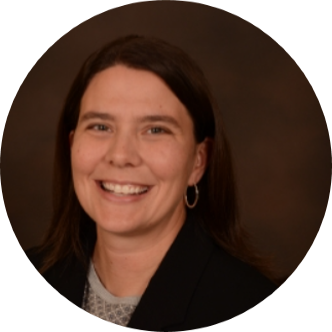
Dr. Amy N. Thompson is a Clinical Associate Professor at the University of Michigan College of Pharmacy and Director of Clinical Ambulatory Pharmacy Services for the University of Michigan Medical Group. She graduated from the Medical University of South Carolina with her Doctor of Pharmacy degree in 2005 and her postgraduate training, both PGY1 and PGY2 in Family Medicine at the Medical University of South Carolina. Within the College of Pharmacy, Dr. Thompson serves as the Associate Chair for the Department of Clinical Pharmacy. She is actively involved with student mentorship; and serves as faculty co-advisor for the Student Run Free Clinic and our American Pharmacists Association-Academy of Student Pharmacists organization. Dr. Thompson is passionate about experiential education and oversees the P2 Ambulatory Care IPPE. Additionally, she takes P4 students on rotation for a non-traditional ambulatory care management experience. In the classroom setting, Dr. Thompson teaches within our therapeutic sequence on disease state management of the aging patient. At the health-system, Dr. Thompson oversees ambulatory care clinical practice across primary care and most specialty areas. Additionally, she provides chronic disease state management for patients within the primary care setting. Dr. Thompson is actively involved with the American Pharmacists Association where she is the current coordinator elect for the Medical Home/ACO special interest group. Dr. Thompson’s scholarly activity focuses on ambulatory care service development, transitions of care, as well as student and residency training. Faculty Spotlight 
Dr. John S. Clark is a Clinical Associate Professor at the University of Michigan College of Pharmacy and Associate Chief Pharmacy Officer at University of Michigan Health. He practices, teaches, and researches in the area of pharmacy practice management and leadership. He graduated from the University of Toledo with a Bachelor of Science in Pharmaceutical Sciences and Doctor of Pharmacy. Additionally, he got his Master of Science in Pharmacy from University of Wisconsin as part of his two-year Health-System Pharmacy Administration and Leadership Residency. He is Board Certified in Pharmacotherapy and is a Fellow of the American Society of Health-System Pharmacy (FASHP). Clark has received a literature award from ASHP, was MSHP Pharmacist of the Year in 2021, and received the Distinguished Alumni Award from the University of Toledo College of Pharmacy. At the University of Michigan College of Pharmacy, Dr. Clark developed the second-year course in Health-System Pharmacy and Leadership. He primarily teaches in the leadership portion of this course. He also assisted in developing an elective course in Pharmacy Leadership at the College of Pharmacy. He takes students on Advanced Pharmacy Practice Experiences at the health-system in leadership and management. He is the faculty advisor for the UM Chapter of Phi Lambda Sigma, the pharmacy leadership society. Dr. Clark was the Residency Program Director for PGY1 for 14 years. He is a preceptor for the PGY1 Pharmacy for Leadership and Academia rotations and PGY1/2 Health System Pharmacy Administration and Leadership Residency for Senior Leadership. He focuses on developing future leaders in clinical and distributive pharmacy practice. As for scholarly activity, he focuses on pharmacy leadership, pharmacy residency training, technology implementation, and regulatory preparedness. He has published numerous manuscripts and book chapters. At University of Michigan Health, Dr. Clark is responsible primarily for inpatient, clinical and distribution pharmacy practice for the 1100 bed academic health center. He is a past chair of the ASHP Commission on Credentialing. He is a Past-President of the Michigan Society of Health-System Pharmacists (MSHP). He also serves as Chair of the ASHP Practice Advancement Initiative (PAI) Advisory Group and ASHP Fellow Recognition Selection Committee. He has over 20 years of experience in developing clinical and distribution pharmacy practice and enhancing leadership in pharmacy. Faculty Spotlight 
Dr. Rima Mohammad is a Clinical Associate Professor at the University of Michigan College of Pharmacy and a Post-ICU, Post-Sepsis and Hepatology Clinical Pharmacist Specialist at Michigan Medicine. She received her Doctor of Pharmacy from University of Cincinnati in 2004 and completed her PGY1 pharmacy practice and PGY2 critical care specialty residency at Michigan Medicine in 2006. She is also a board-certified specialist in pharmacotherapy and a fellow of the American College of Clinical Pharmacy (FCCP). She also received the University of Michigan Excellence in Teaching Award in 2021. At the University of Michigan College of Pharmacy, she has taught various topics in the 2nd and 3rd year therapeutic courses, focused on critical care, gastrointestinal/hepatology/nutrition and other internal medicine based therapeutic areas. She also has been actively involved in precepting pharmacy students through their APPEs, and PGY1 and PGY2 residents for their teaching/academic and post-ICU clinic rotations. Additionally, she is also a faculty advisor and co-founding advisor of two pharmacy organizations that focus on diversity and community outreach, the Multicultural Pharmacy Student Organization (MPSO) and Arab American Pharmacist Association (AAPA). Overall, she is passionate in mentoring pharmacy learners to become future leaders of the pharmacy profession. As for research, Dr. Mohammad research focuses on the areas of internal medicine, critical care, and gastroenterology/hepatology. Her passion and primary goal is improving patient outcomes through various drug therapy approaches and innovative practice models and services. Most of her scholarly work has focused on linking her significant efforts in clinical service to making an impact at all levels of practice including local, national, and international levels. She has authored and presented many papers and platform presentations focused on her research interests. More recently she has published and presented on the impact of the COVID-19 pandemic on pharmacist and patients, interventions in ICU survivors, Long COVID, and the impact of critical illness after hospitalization. As for service, Dr. Mohammad has been involved in providing innovative services throughout her career, such as post-ICU recovery and hepatology. Currently, she is a key member of the interprofessional team caring for patients in the Post-ICU clinic, and the Cirrhosis and Sepsis Transitions of Care clinics. She has over 16 years of patient care experiences, developing and implementing innovative clinical services, research and teaching. Faculty Spotlight 
Gregory Eschenauer earned his Doctor of Pharmacy from Butler University and completed his PGY1 Pharmacy Practice and PGY2 Infectious Diseases residencies at the University of Michigan. After completing his residencies he served as an Infectious Diseases Clinical Pharmacist, first at NewYork-Presbyterian/Columbia University Irving Medical Center and subsequently at the University of Pittsburgh Medical Center. In 2013 he joined the faculty the University of Michigan and is a Clinical Associate Professor in the Department of Clinical Pharmacy at the College of Pharmacy and a Clinical Pharmacy Specialist in Infectious Diseases at Michigan Medicine. He is a member of the Antimicrobial Stewardship Program at Michigan Medicine, which is responsible for promoting safe, appropriate, and cost-effective antimicrobial therapy to optimize patient outcomes and minimize the selection of pathogenic microorganisms and the emergence of resistance (www.med.umich.edu/asp/). Gregory’s research interests include antimicrobial stewardship and antifungal pharmacotherapy, and he represents the Society of Infectious Diseases Pharmacists on the National Institutes of Health COVID-19 Treatment Guideline Panel. Faculty Spotlight 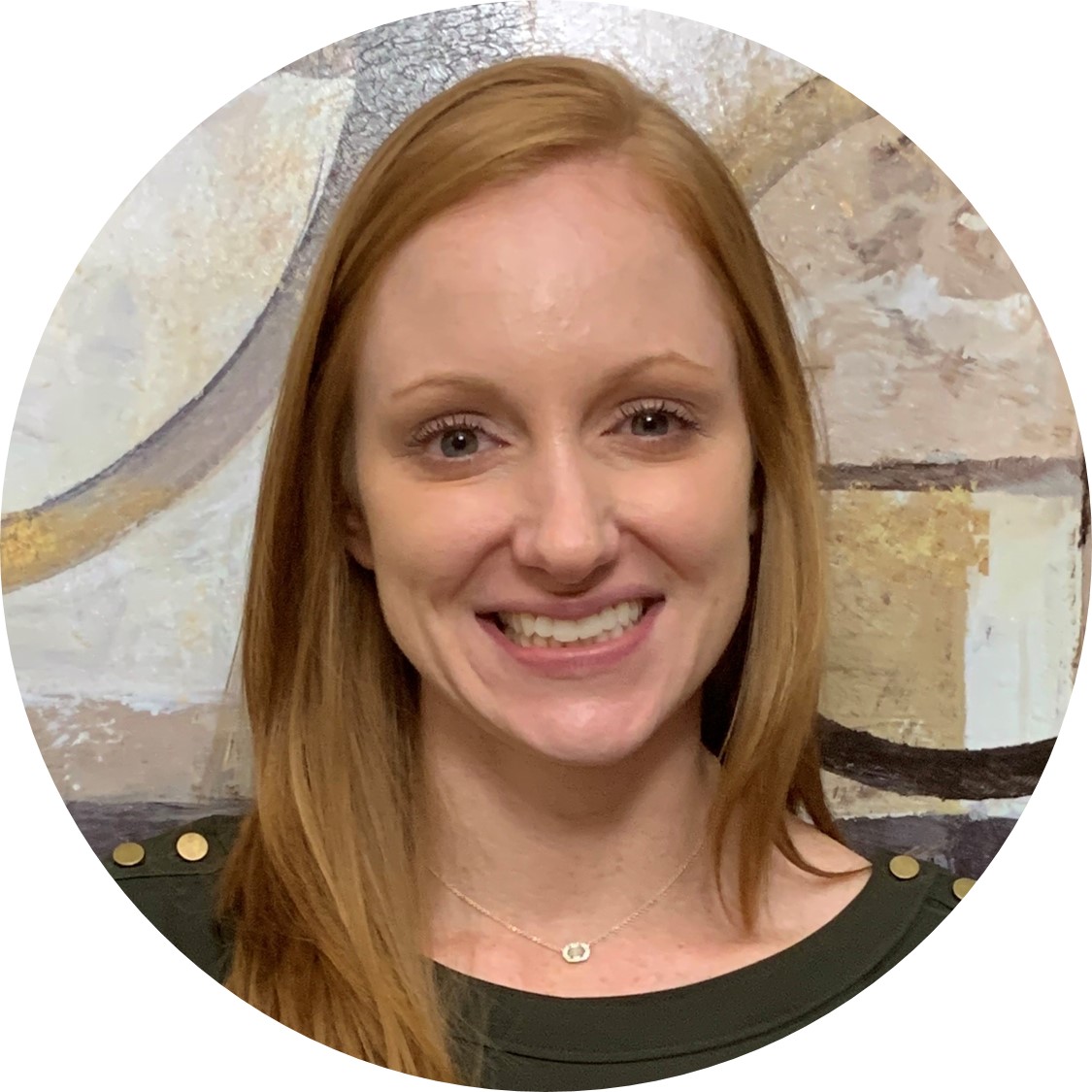
Dr. Sarah Haniganis a Cardiology and Anticoagulation Pharmacy Specialist at Michigan Medicine and Clinical Assistant Professor at the University of Michigan College of Pharmacy. She earned her Doctor of Pharmacy degree from Drake University in 2010 and completed a PGY-1 Pharmacy Practice Residency at The Nebraska Medical Center and a PGY-2 Cardiology Specialty Residency at the University of Illinois Chicago. Following post-graduate training in 2012, she accepted her current pharmacy specialist position at the University of Michigan Health System and transitioned to an 80/20 College of Pharmacy faculty position as Clinical Assistant Professor in October 2020. Dr. Hanigan currently practices in acute care cardiology and anticoagulation. Her patient care services rotate monthly and include coverage of the Cardiac Intensive Care Unit, the Advanced Heart Failure/Transplant Team, the Electrophysiology Service, and the Medicine Coronary Services. She precepts IPPE and APPE students and PGY-1 and PGY-2 pharmacy residents. Dr. Hanigan is the lead-pharmacist for Michigan Medicine’s Inpatient Pharmacist-Assisted Anticoagulation Service where she advanced service expansion and roll-out, adapted pharmacy workflows in the transition to EPIC and with upgrades to the current system, and provides resident and staff training. She is a member and secretary of the Anticoagulation Subcommittee of P&T where she creates and updates health system anticoagulation policies and guidelines and evaluates the safe and effective use of anticoagulation therapy. Her research interests include evaluating anticoagulation safety and efficacy in special populations, evaluating immunosuppressive strategies and supportive treatments in heart transplant patients, and advancing stewardship and quality improvement in these areas. Her recent or current research projects have evaluated:
Faculty Spotlight 
Hanna Phan, PharmD, FCCP, FPPA joined the Department of Clinical Pharmacy in August 2020 and is cross appointed as a Faculty Affiliate for the Susan B. Meister Child Health Evaluation and Research (CHEAR) Center at the University of Michigan. To her return to Michigan, Dr. Phan was faculty from 2008-2020 at the University of Arizona College of Pharmacy, Department of Pharmacy Practice and Science with a cross appointment at the College of Medicine, Department of Pediatrics, Division of Pediatric Pulmonary Medicine as well as the Asthma and Airway Disease Research Center. As part of her tenure at the University of Arizona, Dr. Phan established the first accredited PGY2 Pediatrics Pharmacy Residency in the state of Arizona and served as part of the Maternal Children Health Bureau (MCHB) funded Pediatric Pulmonary Center, an interprofessional training program to develop clinicians for care of children and youth with special health care needs. Dr. Phan completed her undergraduate and Doctor of Pharmacy at the University of Michigan and postdoctoral fellowship at The Ohio State University. Dr. Phan currently provides care for children with chronic pulmonary disease, with a focus in cystic fibrosis (CF), as a clinical pharmacist specialist in ambulatory care at C.S. Mott Children’s, Michigan Medicine. As part of her practice, she precepts learners in an interprofessional capacity, ranging from second year PharmD students' Ambulatory Care IPPE, fourth year PharmD students' APPE rotations, PGY1 Pharmacy Practice residents, PGY2 Pediatrics and Ambulatory Care residents, as well as pediatric pulmonary medical fellows. Dr. Phan has received state and national recognition for her clinical practice, professional service, and research from organizations such as the Arizona Pharmacy Association, Pediatric Pharmacy Association (PPA), American College of Clinical Pharmacy (ACCP), and American Society of Health-System Pharmacists (ASHP) Foundation. She serves the profession in various capacities as part of several national committees and organization, including having served as President of PPA (2019-2020), Chair of the Pediatric Practice and Research Network as part of ACCP (2011-2013), and Secretary for the Pediatric Special Interest Group for AACP (2013-2015). Dr. Phan is also one of two pharmacists who serve on the Success with Therapies Research Consortium and the Data Safety Monitoring Board for clinical trials, as part of the CF Foundation. She has given lectures nationally and internationally and authored various book chapters and peer-reviewed manuscripts regarding chronic disease management and pharmacotherapy in pediatrics. Dr. Phan has led and contributed to various funded studies including serving as the first pharmacist principal investigator supported by the CF Foundation’s Success with Therapies Research Consortium. Additionally, Dr. Phan’s interest and experience in pediatric asthma offered the opportunity to serve as a Co-I and sole pharmacist investigator for a U01 NIH funded project, “An Asthma Collaboration to Reduce Childhood Asthma Disparities on The Navajo Nation.” Dr. Phan’s current research interests include patient-caregiver medication education, medication adherence, and interprofessional care of children with chronic illness such as cystic fibrosis and asthma. Faculty Spotlight 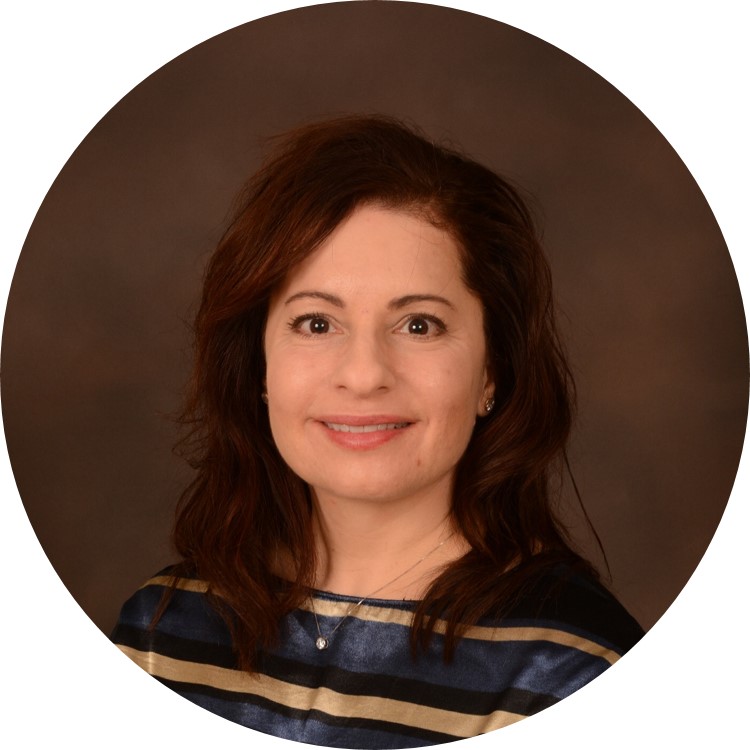
Beatriz Manzor Mitrzyk joined the Department of Clinical Pharmacy in May 2019. Prior to this appointment, she completed her PharmD (1992), Pharmacy Practice Residency (1993), and Post-Doctoral Fellowship (2019) at the University of Michigan. She completed the Clinical Pharmacy Translational Science Fellowship under the mentorship of Dr. Karen Farris. During this time, she trained in health services research techniques to address medication nonadherence among different patient populations, and to understand provider perceptions and the clinical utility of pharmacogenomic testing for antidepressant use. Currently, Beatriz is a MICHR KL2 scholar conducting qualitative, quantitative, and mixed method research to address medication related health disparities using a community engaged research approach. She is a Clinical Pharmacy Specialist at Saline Health Center and provides collaborative drug therapy management to persons with diabetes, hypertension, dyslipidemia, and polypharmacy under a collaborative practice agreement. Beatriz is also a member of the Michigan Medicine Antiracism Oversight Committee. Her research objectives are to develop, test, and implement culturally tailored, technology-enabled, collaborative interventions to empower Latinx adults and address medication related health disparities. Several of her current research projects are listed below, and include collaborative efforts with faculty and students from pharmacy, medicine, social work, and behavioral health:
Faculty Spotlight 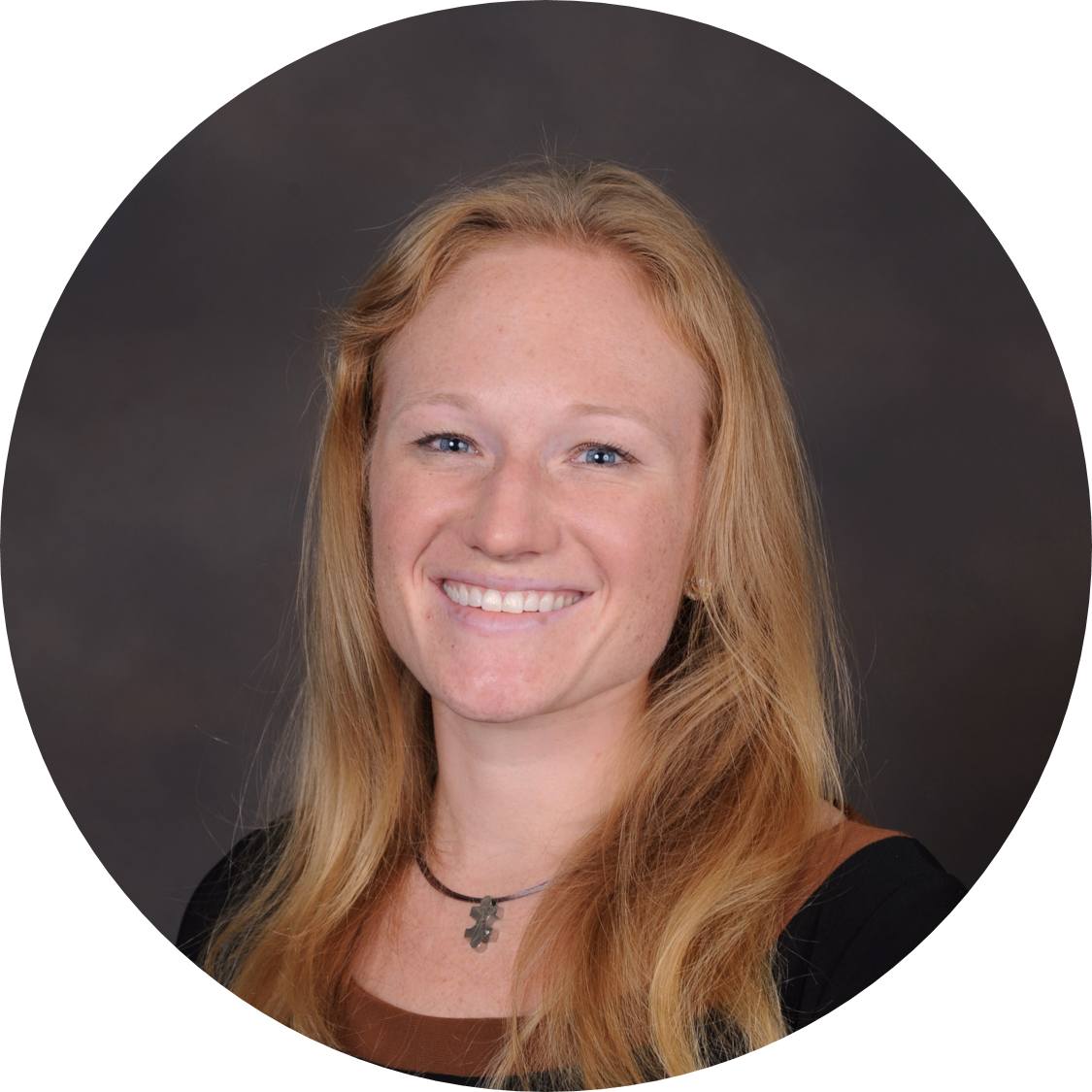
Kristen Ward joined the Department of Clinical Pharmacy in October 2017. Prior to this appointment, she completed her undergraduate (Bachelor of Science in Chemistry 2010), PharmD (2014) and Post-Doctoral Fellowship (2017) at the University of Michigan. Her fellowship was completed under the mentorship of Dr. Vicki Ellingrod, where she trained in applying precision medicine research techniques, such as metabolomics and pharmacogenomics, towards understanding mechanism of adverse metabolic side effects of antipsychotic medications. Clinically, Kristen works in ambulatory psychiatry and in pharmacogenetics implementation. Her clinical and research objectives are aligned toward the ultimate goal of improving outcomes for patients with mental illness. Several of her current research projects are listed below, and include collaborative efforts with pharmacy students and colleagues in Pharmacy and Psychiatry:
Faculty Spotlight 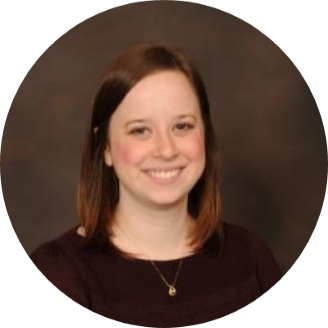
Sarah Vordenberg received her Doctor of Pharmacy and Master of Public Health from Northeast Ohio Medical University. She subsequently completed a community pharmacy residency with Kroger and Ohio Northern University. She joined the University of Michigan College of Pharmacy July 2013 and is currently a Clinical Associate Professor. Dr. Vordenberg's research focuses on engaging older adults in deprescribing decisions in order to improve the appropriateness and safety of medication use. She recently completed a research fellowship with the University of Michigan Center for Bioethics and Social Sciences in Medicine to support this work. In addition, she received funding to develop an electronic decision algorithm designed to support student pharmacists as they learn to use patient- and condition-related factors in order to make evidence-based treatment recommendations. Dr. Vordenberg is also actively engaged with teaching both in the classroom and community health settings. She is the coordinator for P504 Pharmacy Practice Skills I, P512 Self-Care Therapeutics, the P2 Community Experience Program. During this upcoming year, she is also coordinating a new course, P657 Supporting Community Health via Interprofessional Teams, in which pharmacy and social work students will participate in health screening and education events at several low-income apartment buildings in Ann Arbor. Faculty Spotlight 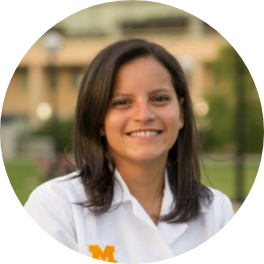
Dr. Lydia Benitez is a Hematology/Oncology pharmacy specialist at Michigan Medicine and Clinical Assistant Professor at University of Michigan College of Pharmacy. Born and raised in Puerto Rico, Dr. Benitez earned her Bachelor of Science in Biology from the University of Michigan in 2009 and her PharmD from the University of Michigan, College of Pharmacy in 2014. She went on to complete a PGY-1 Pharmacy Practice Residency and PGY-2 Hematology/Oncology Pharmacy Residency at University of Michigan where she served as Chief Resident during PGY-1 year. After completion of post-graduate training in 2016, she practiced at the University of Kentucky Healthcare as a malignant hematology/hematopoietic cell transplant pharmacy specialist and adjunct professor at the UKY College of Pharmacy obtaining her board certification in oncology in 2017. Dr. Benitez returned to University of Michigan in 2018 where she started practicing as the Outpatient Leukemia Clinical Specialist. She transitioned to the College of Pharmacy faculty as Clinical Assistant Professor in 2020. Dr. Benitez currently practices in the acute and chronic leukemia space. She also works with patients who have aplastic anemia, myeloproliferative disorders and other hematologic malignancies. She precepts learners ranging from P2 IPPE students to PGY2 Oncology residents. Dr. Benitez served in the Residency Advisory Committee from 2019-2021 and currently serves as a member of the Residency Preceptor Appointment workgroup and is co-coordinator of the Michigan Medicine Residency Teaching Certificate Program alongside Dr. Kraft and Dr. Ashjian. Her research interests include the appropriate use of new medications in the leukemia, building a framework for oncology stewardship, and the treatment of infections in immunocompromised patients. Recent research projects and publications in the realm of oncology stewardship include:
Faculty Spotlight 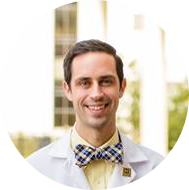
Bernard Marini earned his Bachelor of Science in Anthropology-Zoology at the University of Michigan and his Doctor of Pharmacy from the University of Michigan College of Pharmacy. He completed his PGY1 Pharmacy Practice Residency and PGY2 Oncology Residency at the University of Michigan. Dr. Marini is Board Certified in Oncology Pharmacy and also serves as the residency program director for the PGY2 Oncology Residency program at the University of Michigan. He has been a Clinical Pharmacist Specialist in inpatient hematology since 2014 and recently joined the Department of Clinical Pharmacy as a Clinical Associate Professor in 2020. Dr. Marini's clinical practice primarily focuses on the care of patients with hematologic malignancies. His research focuses on improving clinical outcomes in hematology patients, oncology stewardship, and immunocompromised infectious diseases. He is passionate about expanding high-level hematology/oncology pharmacy research and is helping spearhead a multi-institutional hematology pharmacy research consortium. Dr. Marini also works with the neuro-oncology group to optimize the use and selection of precision medicine therapies. To this end, he helped create the CNS Targeted Agent Prediction (CNS TAP, http://www.cnstap.org/#/) tool, a decision-making algorithm for optimizing the selection of precision medicine therapies in patients with pediatric brain tumors. The CNS TAP tool is currently being utilized by the Pacific Pediatric Neuro-Oncology Consortium (PNOC) as a tumor board decision aid in their latest precision medicine trials. His research has been funded by a grant from the Hematology/Oncology Pharmacy Association (HOPA) and the Chad Carr Pediatric Brain Tumor Center. Dr. Marini is also passionate about pharmacy resident and student training and was awarded the PGY2 Oncology Pharmacy Preceptor of the Year Award in 2019. Faculty Spotlight 
Dr. Heidi Diez completed her undergraduate studies at the University of Michigan and earned her PharmD from the University of Michigan, College of Pharmacy in 2004. She completed a PGY1 community pharmacy practice residency in 2005 at the University of Washington and Kelley-Ross Pharmacy. In 2007, Dr. Diez was recruited back to the University of Michigan as the first Community Pharmacy based faculty, charged with revamping how community pharmacy was taught along with bringing immunization training to the College of Pharmacy, a longtime dream of hers. In 2012, Dr. Diez transitioned into her current clinical role from Community practice by establishing clinical practice at two Family Medicine sites within Michigan Medicine. In that same year, Dr. Diez became board certified in Ambulatory Care Pharmacy. Dr. Diez currently provides clinical care, with an emphasis on diabetes management at Briarwood Family Medicine and Domino Farms Family Medicine as part of the patient centered medical home model. Dr. Diez is passionate about training learners as well as sharing the impact of clinical pharmacy in Family Medicine. She precepts learners across the pharmacy training continuum and medical discipline, ranging from second year PharmD students' Ambulatory Care IPPE, fourth year PharmD students' APPE rotations, PGY1 Pharmacy Practice residents, PGY2 Ambulatory Care residents, as well as second year medical students. In 2020, Dr. Diez was named Director of Vaccine Implementation at the College of Pharmacy, eleven years after organizing and leading the first immunization clinic at the College of Pharmacy for the H1N1 vaccine. Dr. Diez is also committed to giving back to the profession as state immunization trainer for the Michigan Pharmacists Association since 2011. This year alone, she has co-led five virtual trainings sessions reaching pharmacists as far as Washington, DC to meet the needs for delivering the COVID-19 vaccine. Beyond immunizations, Dr. Diez is inspired by patients in her clinical practice where she provides personalized, evidence-based care to help patients manage diabetes. She carries this enthusiasm and experience into educating pharmacy, nurse practitioner and medical students about diabetes. In 2020, she was awarded the Department of Clinical Pharmacy Preceptor of the Year Award and in 2021, received the PDC Faculty Appreciation Award for her work in the classroom from the Class of 2023. Dr. Diez's research interests and recent publications focus around diabetes management such as insulin barriers and dietary strategies, promotion of ambulatory care through experiential education, vaccine implementation, and novel teaching pedagogies. She also has interests in the impact of interdisciplinary layered learning in diabetes education for medical students as well as evaluation of immunization services and safety. Faculty Spotlight 
Corey A. Lester is a Research Assistant Professor who joined Michigan in 2018. He is a medication safety expert using pharmacy informatics tools to improve the delivery of healthcare. Dr. Lester received a PharmD from the University of Rhode Island in 2012 and completed a PGY-1 Community Practice Residency at Virginia Commonwealth University. He received an MS and PhD in social and administrative sciences from the University of Wisconsin-Madison, School of Pharmacy with a Minor in Industrial and Systems Engineering. He leads the Medication Data Science (MeDS) lab in the College of Pharmacy. The MeDS lab studies the effect of machine learning and other forms of artificial intelligence on provider well-being, health outcomes, patient experience, and costs (i.e., Quadruple Aim) in medication use systems. Dr. Lester partners with engineers, information scientists, statisticians, and clinicians from academia and industry in order to foster creative and disruptive innovations that improve human health. An informatics supported approach to the quadruple aim of medication use systems, when combined with domain knowledge expertise, leads to significant breakthroughs in both theoretical and applied research. His current work investigates how human-machine learning teams perform tasks together so that we can achieve routine, reliable, and resilient improvements with electronic prescriptions and medication verification. Faculty Spotlight 
Dr. Shawna Kraft earned her Bachelor of Science from the University of Michigan in 2002 and her PharmD from the University of Michigan, College of Pharmacy in 2006. joined the University of Michigan in 2005 as a Clinical Pharmacist Specialist in Cardiology. She completed a PGY1 pharmacy practice residency as well as a PGY2 oncology specialty residency at University of Michigan Hospitals and Health Centers. Dr. Kraft began practicing inpatient malignant hematology/oncology at University of Michigan Health Center in 2006 as adjunct faculty and clinical specialist. She became board certified in oncology in 2009. In 2012, Dr. Kraft transitioned to College of Pharmacy faculty as Clinical Assistant Professor and was promoted to Associate Professor in 2020. Additionally in 2012, she transitioned to ambulatory oncology, focusing on operationalizing an oral oncolytic program at the Rogel Cancer Center which she oversaw and expanded from 2012-2016. Dr. Kraft currently provides care for patients at the Rogel Cancer Center in the areas of genitourinary cancers, melanoma and breast cancers. She precepts learners ranging from P2 IPPE students to PGY2 Oncology residents within these specialty clinics. Dr. Kraft is passionate about pharmacy residency training, serving as the PGY2 Oncology Program Director from 2012-2020 and is co-coordinator of the Michigan Medicine Residency Teaching Certificate Program. Dr. Kraft is also enthusiastic about active involvement within our pharmacy organizations and is president-elect for the Michigan Society of Healthy System Pharmacists as well as chair for Hematology Oncology Pharmacists Association BCOP Updates committee. Dr. Kraft's research interests and recent publications focus on interdisciplinary oncology training, student health and wellness, and immunotherapy related side effects. She also has an interest in innovative practices including utilizing technology to monitor adherence and impact patient reported symptom outcomes as well as student fulfilling unique roles within an on call program providing patient services such as herbal supplement reviews and medication appeal letter drafting. Faculty Spotlight 
Dr. Hertz joined the Department of Clinical Pharmacy at the University of Michigan College of Pharmacy in April 2013. Prior to joining the UM faculty Dr. Hertz received his PharmD from the Ernest Mario School of Pharmacy at Rutgers University and a PhD in Pharmaceutical Sciences from the UNC Eshelman School of Pharmacy. Dr. Hertz's dissertation research focused on discovery and validation of pharmacogenetic predictors of taxane-induced neuropathy. Dr. Hertz's current research is interested in developing tools for individualizing treatment in patients with cancer and translating them into clinical practice. He has a particular interest in optimal use of paclitaxel for women with breast cancer, including identification of an ideal exposure target to maximize efficacy while avoiding unnecessary toxicity. Dr. Hertz has several other ongoing projects to discover and validate the effect of common genetic variants on cancer drug exposure or patient sensitivity to toxicity. He also conducts prospective studies to implement pharmacogenetic or drug-drug interaction screening in patients with cancer to prevent treatment-related side effects. Much of this work is conducted in collaboration with medical oncologists at the University of Michigan Rogel Cancer Center and within the SWOG cancer research cooperative group. Faculty Spotlight 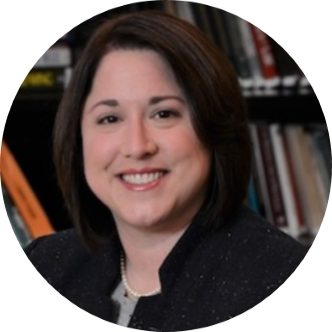
Dr. Antoinette (Toni) B. Coe joined the University of Michigan in 2016 as a Research Assistant Professor. She received her PharmD magna cum laude from Virginia Commonwealth University (VCU) in 2009. In 2010, she completed a PGY-1 Community-Based Pharmacy Practice Residency with VCU School of Pharmacy/Martin's Pharmacy. She then received her PhD in Pharmaceutical Sciences from VCU in 2015. She completed post-doctoral training as a 2016-2018 Clinician Scholar in the University of Michigan Institute for Healthcare Policy and Innovation (IHPI) Clinician Scholars program. In 2018, she transitioned to an Assistant Professor position. Dr. Coe is a pharmacist-health services researcher devoted to improving transitions of care and ensuring safe and effective medication use in older adults, especially those who are vulnerable, cognitively impaired, and with Alzheimer's disease and related dementias. Her research focuses on improving medication use through pharmacist-provided comprehensive medication reviews and medication management, identifying strategies and interprofessional models of care to prevent medication-related problems during care transitions, and examining the impact of policy on health outcomes. Her work aims to implement and disseminate evidence-based interventions to improve health and medication use in older adults that address health disparities. Dr. Coe's work has been funded by the American Foundation for Pharmaceutical Education, Michigan Institute for Clinical and Health Research KL2 award, Michigan Region VII Area Agency on Aging, and the University of Michigan NIH NIA-funded Center to Accelerate Population Research in Alzheimer's. Faculty Spotlight 
Amy Pasternak earned her PharmD from the Raabe College of Pharmacy at Ohio Northern University. She completed a PGY1 Pharmacy Practice Residency at Cleveland Clinic Hillcrest Hospital, a PGY2 residency in Clinical Pharmacogenetics at St. Jude Children's Research Hospital, and the Clinical Pharmacy and Translational Science Fellowship at the University of Michigan College of Pharmacy. She is a Clinical Assistant Professor at the UMCOP and a clinical pharmacist in pharmacogenetics at Michigan Medicine. Her clinical practice is focused on the implementation of pharmacogenetics into the Michigan Medicine medical record and she works closely with the Department of Pharmacy, University of Michigan Precision Health Initiative, and other genetics specialists to advance these efforts. Examples of implemented or ongoing projects include the deployment of advisory alerts to identify high-risk prescriptions based on a genetic result, monitoring of duplicate pharmacogenetic testing to decrease testing costs, and establishing institutional guidance for medications with recommendations for pharmacogenetic testing. She is also working to establish a pharmacogenetics clinic to increase accessibility of result interpretation for patients and providers. Faculty Spotlight 
Michael Smith earned his Bachelor of Science in Chemistry with a Bioscience Option and his Doctor of Pharmacy from the University of Pittsburgh. He completed his PGY1 Pharmacy Residency and PGY2 Internal Medicine Residency at the University of Pittsburgh and UPMC. He is a Clinical Associate Professor at the UMCOP and a clinical pharmacist specialist in Pain and Palliative Care at Michigan Medicine and is the Residency Program Director for the PGY2 Pain Management and Palliative Care Pharmacy Residency. His clinical practice includes inpatient and outpatient palliative care and outpatient chronic pain. Michael's research interests focus on the safe use of symptom management medications in vulnerable patients, namely analgesics for patients with and who survive cancer. His methodological interests lie within mixed methods and large datasets. His ultimate goal is to support providers who care for vulnerable patients with real time support, emulating that of his clinical practice. Faculty Spotlight 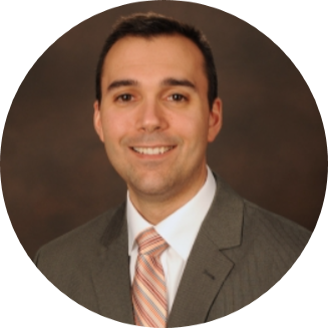
Dr. Michael Dorsch joined the University of Michigan in 2005 as a Clinical Pharmacist Specialist in Cardiology. Dr. Dorsch received his PharmD from Ohio Northern University and completed a PGY1 pharmacy practice residency at Riverside Methodist Hospital, in Columbus, Ohio, as well as a PGY2 cardiology specialty residency at University of North Carolina Hospitals, in Chapel Hill. He earned a Master of Science in clinical research design and statistical analysis from the University of Michigan School of Public Health and completed an institutional K30 award from the Michigan Institute for Clinical & Health Research. In 2012, Dr. Dorsch transitioned to College of Pharmacy faculty as Clinical Assistant Professor and was promoted to Associate Professor in 2014. After several externally funded research grants, he moved to the tenure track in 2018 as an Assistant Professor. Dr. Dorsch is a clinical researcher who studies the effects of health information technology (IT) on health outcomes in patients with cardiovascular disease. He studies the development, implementation and outcomes associated with patient- and provider-centered clinical decision support (CDS). Specifically, providing the right health information to the right individual at the right time. Provider-centered CDS uses electronic health record (EHR) or health information exchange infrastructure to facilitate providers prescribing the most appropriate medications. Patient-centered CDS uses mobile or web applications to effortlessly assist in monitoring health status, promote health behavior modifications, and/or provide actionable health information. Dr. Dorsch's research has been funded by the American Heart Association (AHA), National Institutes of Health, and Agency for Health Research and Quality. He is also a Board Certified Cardiology Pharmacy Specialist and named a Fellow of the American College of Clinical Pharmacy (ACCP) and AHA. Most recently, he has received the 2016 Professional Practice Award from the Michigan Society of Health-System Pharmacists and the 2019 Mentoring Award from the ACCP Cardiology Practice and Research Network. Faculty Spotlight 
Emily Ashjian earned her Bachelor of Science in Molecular, Cellular and Developmental Biology at the University of Washington and her Doctor of Pharmacy from the University of North Carolina Eshelman School of Pharmacy with highest honors and highest distinction. She completed her PGY1 Pharmacy Residency and PGY2 Ambulatory Care Pharmacy Residency at the University of Michigan, serving as Chief Resident both years. Dr. Ashjian is Board Certified in Pharmacotherapy and Ambulatory Care Pharmacy and is a Certified Diabetes Care and Education Specialist. Emily provides care for patients in internal medicine at Briarwood Medical Group, a Michigan Medicine patient centered medical home, and with the Multidisciplinary Chronic Kidney Disease team at Michigan Medicine. Since the beginning of the COVID-19 pandemic she has transitioned her clinical practice from in person visits to a telehealth model. She has continued to precept learners ranging from P2 IPPE students to PGY2 Ambulatory Care residents virtually using a synchronous format and will be introducing this year's class of third year pharmacy students to telehealth in the ambulatory care environment as she coordinates the conversion of Pharmacy Practice Skills III to a virtual, synchronous format this fall. Emily is passionate about pharmacy residency training, serving as the PGY2 Ambulatory Care Residency Program Coordinator and co-coordinator of the Michigan Medicine Residency Teaching Certificate Program. Emily's research interests and recent publications focus on the impact of innovative clinical pharmacy services on patient outcomes, cardiovascular risk reduction, diabetes, and chronic kidney disease. She also has interests in experiential education and the scholarship of teaching and learning. She aims to empower patients to implement evidence-based medication changes and recommendations made for their chronic disease states in both primary care and specialty settings, and envisions a role for interprofessional student teams to provide education and support, a project she is currently pursuing through her participation in the 2020 University of Michigan Interprofessional Leadership Fellows Program. Faculty Spotlight 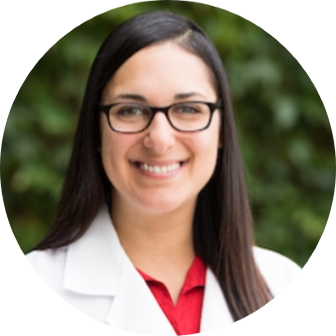
Dr. Jasmine Luzum (formerly Talameh), PharmD, PhD, BCPS joined the Department of Clinical Pharmacy in July 2016. She received her PharmD summa cum laude from the University of Pittsburgh in 2008 and her PhD in Pharmaceutical Sciences from the University of North Carolina at Chapel Hill Eshelman School of Pharmacy in 2013. She completed a Post-Doctoral Fellowship at the Ohio State University College of Medicine and Center for Pharmacogenomics in 2016. She became a Board-Certified Pharmacotherapy Specialist by the Board of Pharmacy Specialties in 2015 and an Applied Pharmacologist by the American Board of Clinical Pharmacology in 2015. Dr. Luzum runs a clinical and translational research lab focused on cardiovascular precision medicine. You can check out her lab website here. The long-term goal of Dr. Luzum's research is to improve cardiovascular medication outcomes with precision medicine. She is especially interested in differences in cardiovascular drug response by race and genomics. Her lab uses a variety of research approaches, including genetics/genomics, electronic health records, and bioinformatics. Her research has been funded by the most prestigious sponsors (e.g., NIH, American Heart Association, and American Foundation for Pharmaceutical Education), published in top journals (e.g., Cell Metabolism, Clinical Pharmacology & Therapeutics, Journal of the American Heart Association), and presented at major conferences (e.g., American College of Cardiology Scientific Sessions and the NIH Pharmacogenomics Research Network). Faculty Spotlight 
Michael Kenes received his Doctor of Pharmacy from the University of Illinois Chicago and completed his Pharmacy Practice Residency at the Cleveland Clinic and his Critical Care Pharmacy Residency at Vanderbilt University Medical Center. Dr. Kenes has also served as a Clinical Pharmacy Specialist in the medical intensive care unit at Wake Forest Baptist Health prior to joining our College. His clinical practice site is the critical care medicine unit at Michigan Medicine. Since his start date in February of this year, he has led clinical pharmacy services in the newly opened (and since closed!) 50-bed RICU or COVID ICU at Michigan Medicine. He helped to streamline and standardized care for these challenging patients and educate the many volunteer providers that rotated through the unit. He has led or assisted in several ongoing research projects including:
Michael looks forward to returning to the critical care medicine unit to further establish his practice and educate our student and resident learners. |
Listing Row
- Academic Departments
- Clinical Pharmacy
- News & Events
- Faculty
- Previous Faculty Spotlights
- Department Metrics
- Research Laboratories
- CPTS PhD Program
- CPTS Fellowship Program
- Post-Graduate Residency
- REACH Fellowship
- Infectious Diseases Fellowship
- ACE Program
- Vision and Mission
- Department Directory
- Simulated Patient Program
- Our History
- Contact Us
- Medicinal Chemistry
- Pharmaceutical Sciences
- Clinical Pharmacy
- Research
- About the College



